Coronavirus: 'Horrifying' death rate of dementia patients
- Published
David Williams, 82, died in April after testing positive days after he returned home from respite care
Figures exposing the pandemic's impact on people with dementia in Wales have been described as "horrifying".
They account for more than one in five Covid-19 deaths, prompting calls for a dedicated dementia task force to be set up in case of a second wave.
Charities, experts and families have told BBC Wales they must be involved in efforts to plan ahead.
The Welsh Government said its dementia action plan, external was being "prioritised in the Covid-19 context".
'We felt like our lives were out of control'
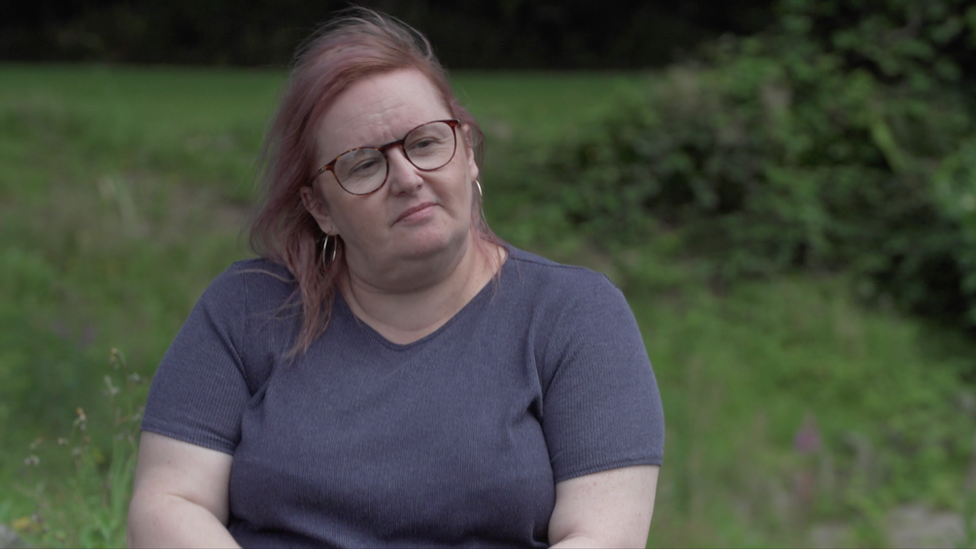
Ceri Higgins says we owe it to those who have died to find out why
After losing her 82-year old father to coronavirus in April, Ceri Higgins from Tonteg in Rhondda Cynon Taff said she had "lots of questions going through my head every day".
David Williams had tested positive just days after returning home following a brief period of respite care in a local nursing home.
Restrictions at the time meant the former RAF engineer and pillar of his local community then spent weeks in hospital without any contact from his family.
"We felt like our lives were out of control because we couldn't have any input really into what was important to him and to us," she said.
Ms Higgins, who had spent the last 11 years caring for her father "pretty much 24/7" said they had developed their own language and way of talking to help him communicate and understand.
A "really lovely nurse" - who rang to say Mr Williams was dying - was able to use some of the phrases and talk to him about his family and his love of dogs in his final moments.
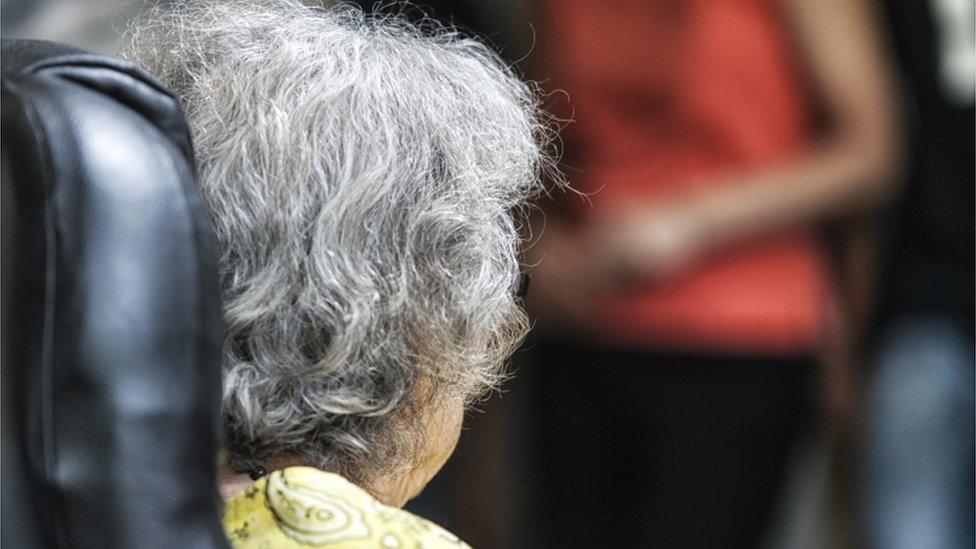
Dementia is the main pre-existing condition associated with coronavirus deaths
While that had been a huge comfort, Ms Higgins said life since her father's death had been like "being in the middle of a maze" - unable to hold the funeral he would have wanted, and growing increasingly concerned not enough was being done to investigate why people with dementia had been so badly affected.
She said: "I watched a government briefing where Andrew Goodall [NHS Wales' chief executive] was talking about bringing like-minded people in the world of cancer together to discuss a way forward and how that would help people.
"And I thought this should be happening for people living with dementia - we need a dementia task force.
"To see such figures for around the time my dad passed away makes me think that's a knock-on from before the pandemic and all the issues for people living with dementia right before that. It's just staggering.
"Every week when we see the number of deaths, [the government] says we must remember that behind every one person dying is a family grieving.
"Well, we owe it [to them] to find out why they died, what were the circumstances behind it."
Ms Higgins started volunteering for a service offering companion phone calls to people living with dementia a week after her father's death.
"This is about basic health-support needs. People who are isolated, losing key skills, potentially not seeing their families, not being stimulated," she said.
"We need to stop and take a few minutes and say, 'look, before we move on, we need to understand what's happening to people with dementia' and we need to do that now because, for many, it's going to be too late."
What do the statistics show?
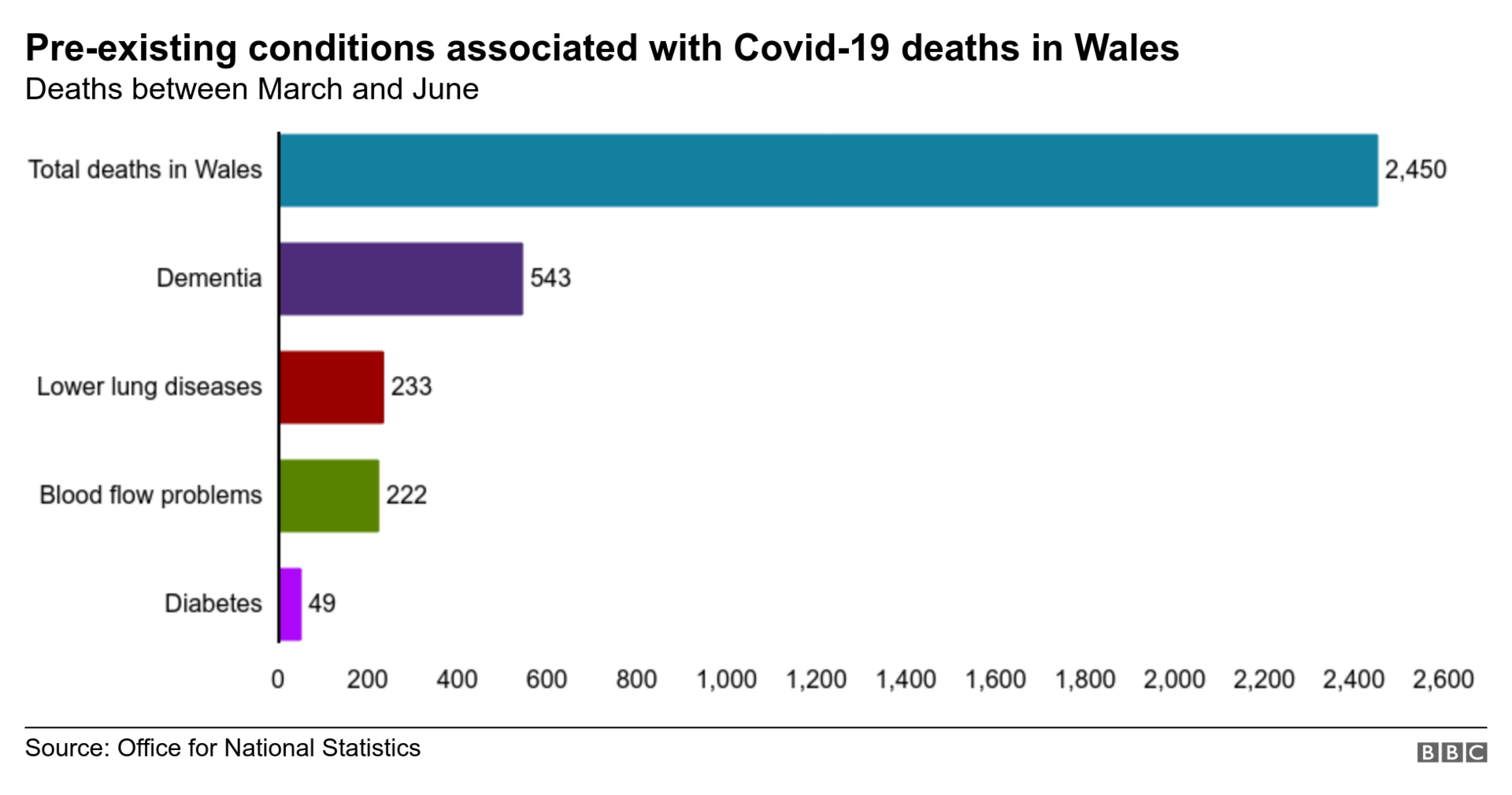
From a total figure of 2,450 deaths in Wales attributed to coronavirus between March and June, the latest Office for National Statistics (ONS) report shows 543 had dementia or Alzheimer's disease.
It is by far the main pre-existing condition associated with Covid deaths.
By comparison, there were 233 deaths of people with underlying lower lung diseases, 222 with blood flow problems to the heart, and 49 with diabetes.
The picture is even more stark in England where a quarter of Covid deaths between March and June had been in people with dementia.
In addition, a separate ONS report on death registrations not associated with Covid-19 has revealed a 52.2% increase in so-called excess deaths of people with dementia during the pandemic across England and Wales.
Excess deaths compare numbers dying this year with those in a five-year average of previous years.
Deaths 'disproportionate'
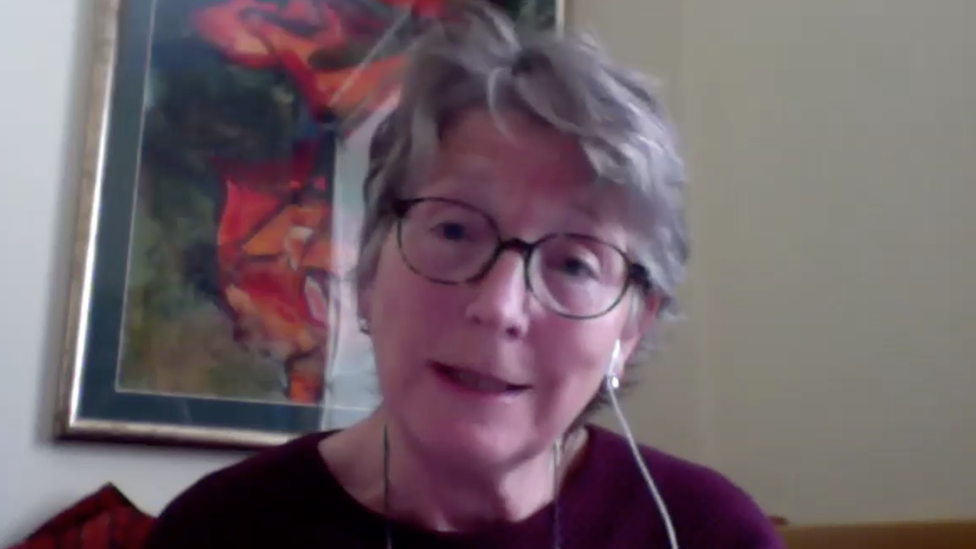
Cheryl Williams: "Lack of face-to-face contact with family... it's had a profound impact"
It is the largest surge in deaths of any health condition and has been described as "staggering" by the Alzheimer's Society.
"The disproportionate number of people with dementia who have died during the pandemic is something that should concern us all," said Cheryl Williams of the charity.
"Certainly many care homes didn't have adequate PPE [personal protective equipment] for staff at the outset of the pandemic.
"It may not have been enough of a priority for the government in the early days."
Like Ceri Higgins, Ms Williams believes there are wider questions beyond infection control as to why people with dementia were "worst hit".
"Lack of face-to-face contact with family, friends, social interaction - it's had a profound impact," she said.
'They haven't been protected'
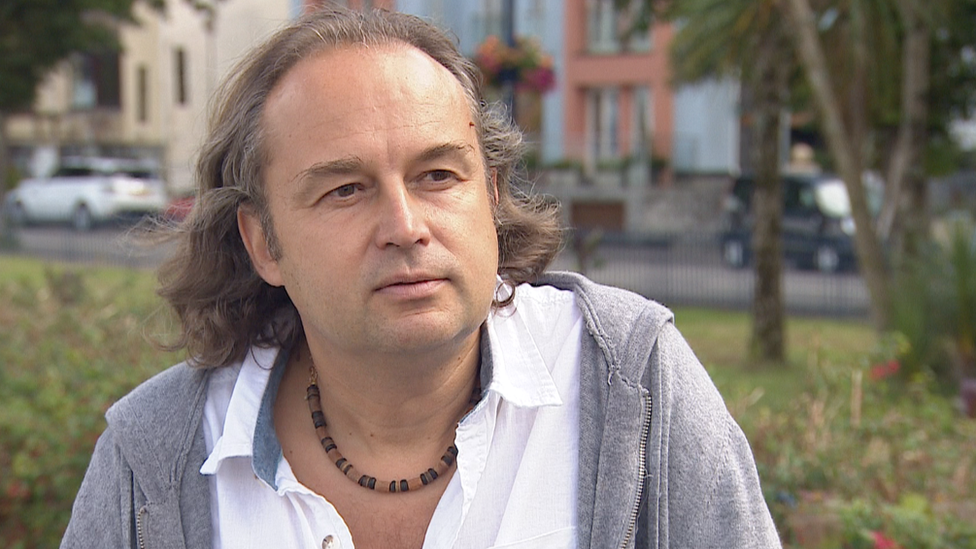
Charles Musselwhite: "It shows how certain groups get forgotten about"
Charles Musselwhite, associate professor in gerontology - the study of ageing - at Swansea University, said he had viewed the statistics with "a mixture of horror and sadness".
"We always knew that older people were much more vulnerable, much more at risk," he said.
"But, really, I think it shows how certain groups get forgotten about.
"Of course in hindsight it's easy to pick on things we could have done differently and things we'd like to do differently again in the future.
"But this is one group that we knew were vulnerable and they haven't been protected in any serious sense."
"There are a lot of really good groups for people living with dementia, charities, third sector organisations, experts such as ourselves.
"We need to involve them more about what to do should there be a second wave, on how to manage this much more carefully.
'Lived experience'
A Welsh Government spokesperson said: "Throughout the pandemic we have met regularly with the dementia care Covid-19 partnership forum, which includes people with lived experience, to understand ways in which we can support individuals with dementia and their families through this pandemic.
"We have developed guidance to support local action and which is helping us identify the increased rehabilitation needs of people affected directly and indirectly by the pandemic.
"This includes people affected by the impact of the lockdown measures. The Quarter 2 NHS Operating Framework, external highlights the need to plan and develop rehabilitation services.
"In order to support this work, Welsh Government's Dementia Oversight of Implementation and Impact Group, external (DOIIG) has been reinstated and is meeting virtually to ensure that the actions set out within the dementia action plan, external are prioritised in the Covid-19 context."
- Published11 August 2020

- Published26 November 2020
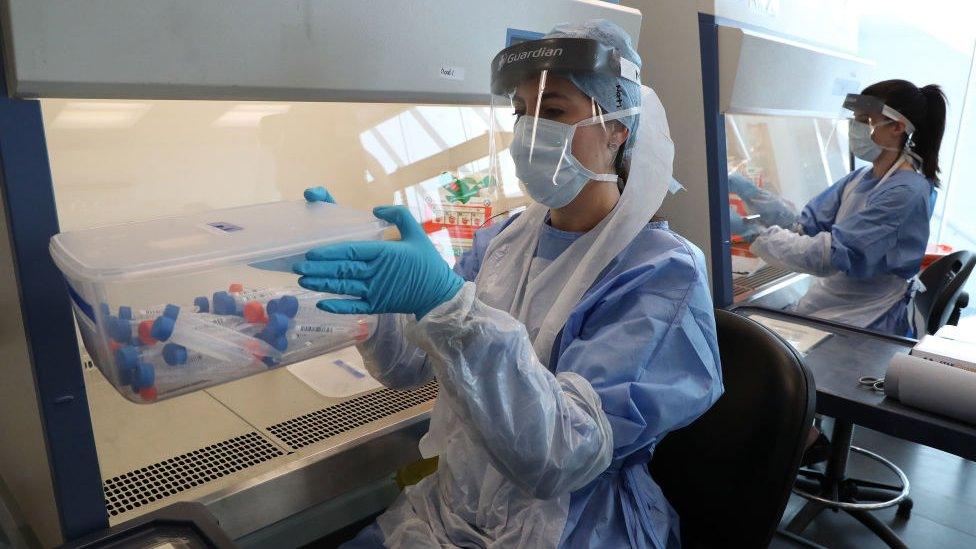
- Published8 August 2020

- Published28 May 2024
